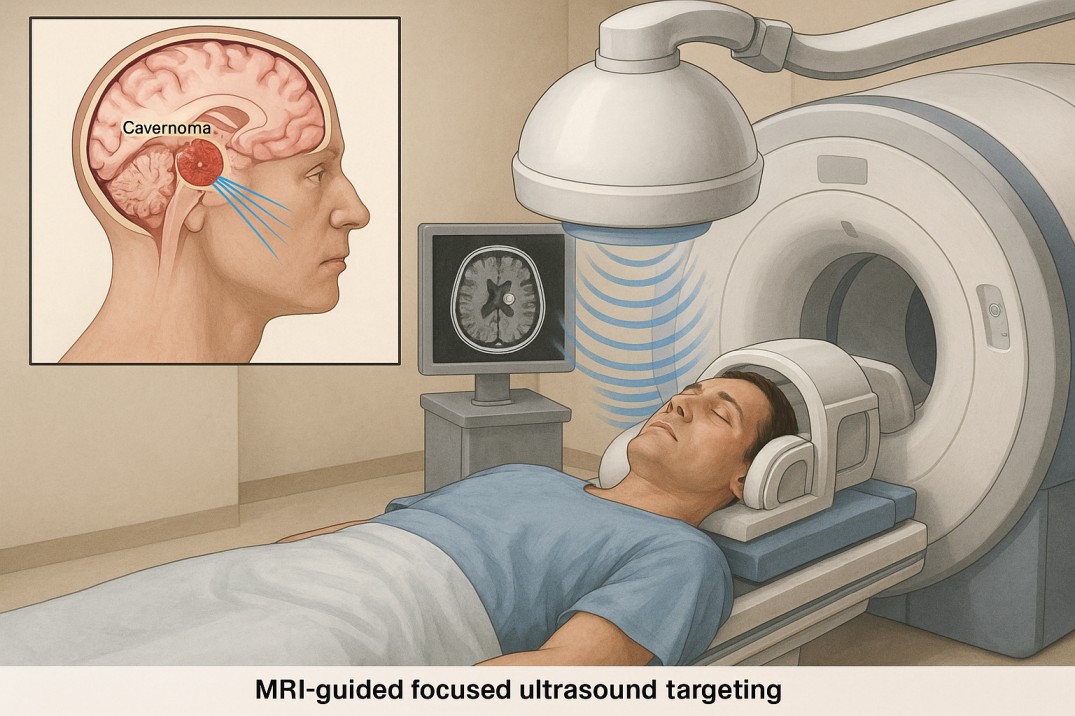A non-invasive brain cavernoma treatment developed at the University of Virginia (UVA) is showing promise in halting lesion growth without surgery. This breakthrough method uses focused ultrasound and may offer new hope for patients with inoperable cavernomas, a condition that affects blood vessels in the brain.
What Is a Brain Cavernoma?
A brain cavernoma, also called a cerebral cavernous malformation (CCM), is a bundle of irregular blood vessels that can leak or bleed. These clusters may cause seizures, headaches, or neurological problems. Traditional treatment often requires open-brain surgery, which poses serious risks—especially when the lesion is located deep in the brain.
Why Non-Invasive Brain Cavernoma Treatment Matters
This non-invasive brain cavernoma treatment uses focused ultrasound guided by real-time imaging. Doctors can target the cavernoma precisely without cutting into the brain. UVA scientists combine the ultrasound with microbubbles to gently open the blood-brain barrier. This allows for medication to reach the lesion directly. According to UVA Health, early studies in animal models showed lesion growth could be halted—even without any drugs.
Benefits Over Traditional Options
Unlike surgery or radiation, focused ultrasound poses fewer complications. It doesn’t damage surrounding tissue and requires no recovery time. UVA’s research, supported by the National Cancer Institute, aims to make this technique widely available for patients who cannot undergo surgery. According to UVA Health’s focused ultrasound study, this innovation could change the standard of care for CCMs.
What Comes Next in Treatment Innovation?
The team at UVA is building an image-guided delivery system to monitor the blood-brain barrier in real time. This would ensure maximum precision and safety. Furthermore, they plan to explore drug combinations that can be delivered during the ultrasound treatment. Because the method is non-invasive, repeated treatments are possible without major risk.
As one of the few Angioma Alliance Centers of Excellence, UVA continues to lead in advanced neurological research. The future of brain cavernoma treatment looks promising, especially for patients who were previously told surgery wasn’t an option.
Explore More:
https://innovatemed.org
Disclaimer: This content is intended for informational purposes only. It is not a substitute for professional medical advice, diagnosis, or treatment. Always consult a healthcare provider for medical guidance.


